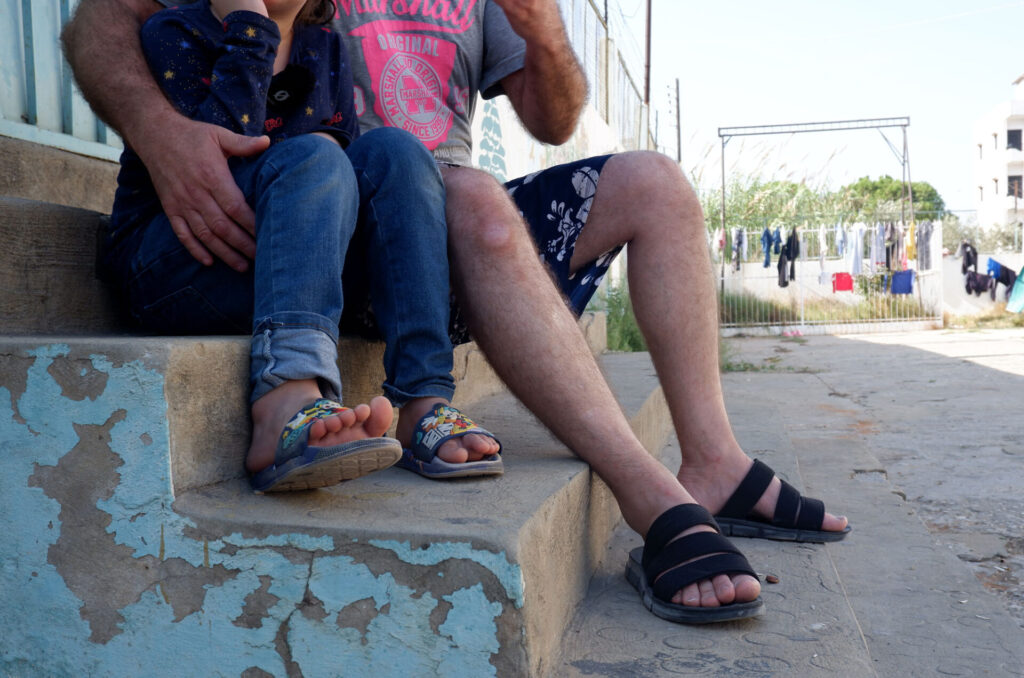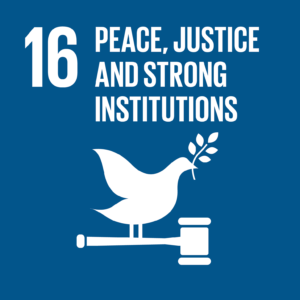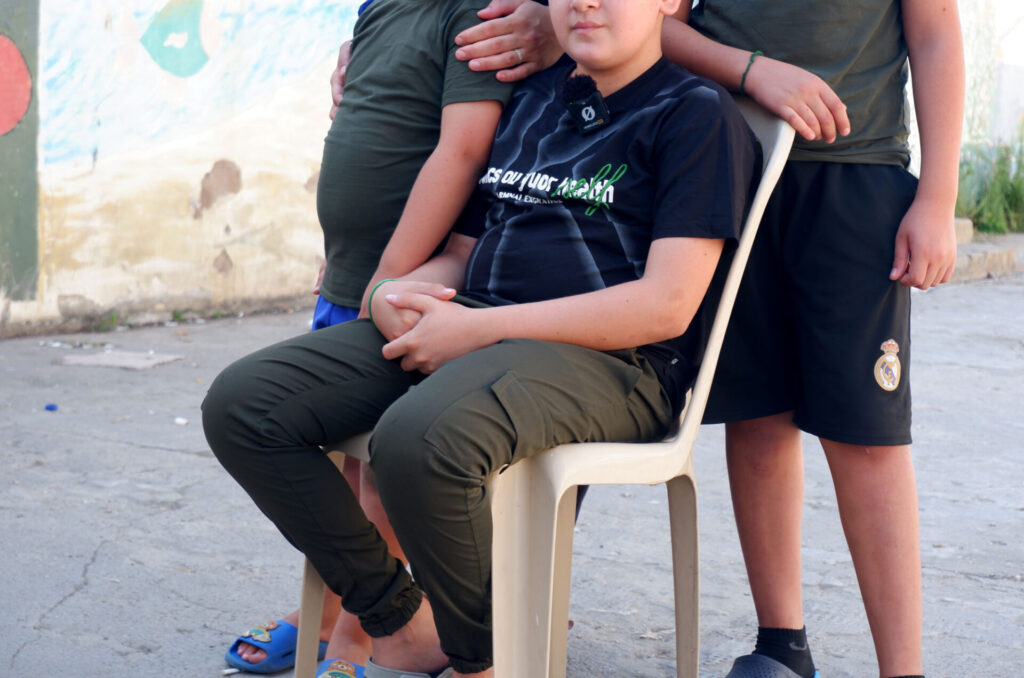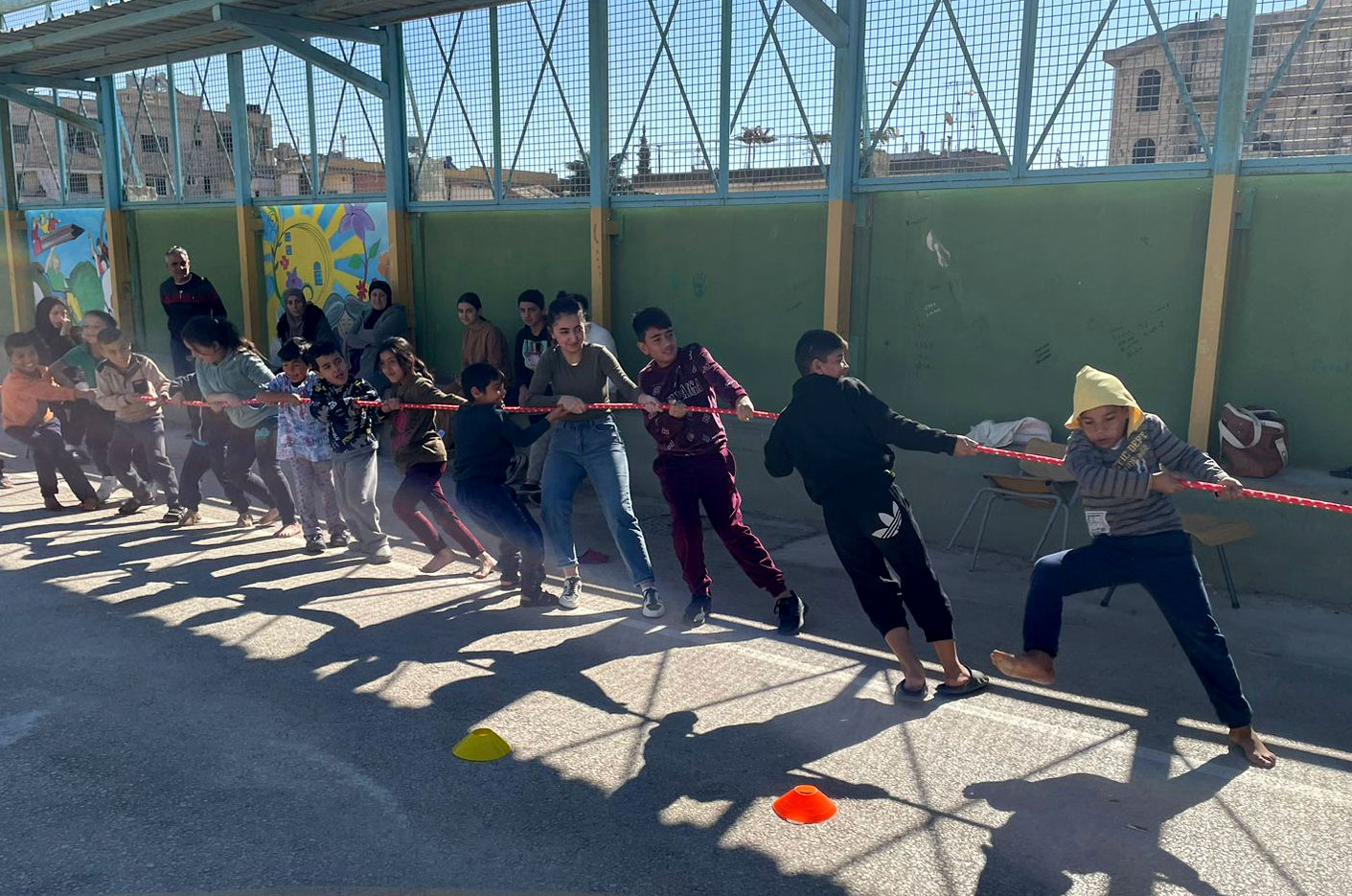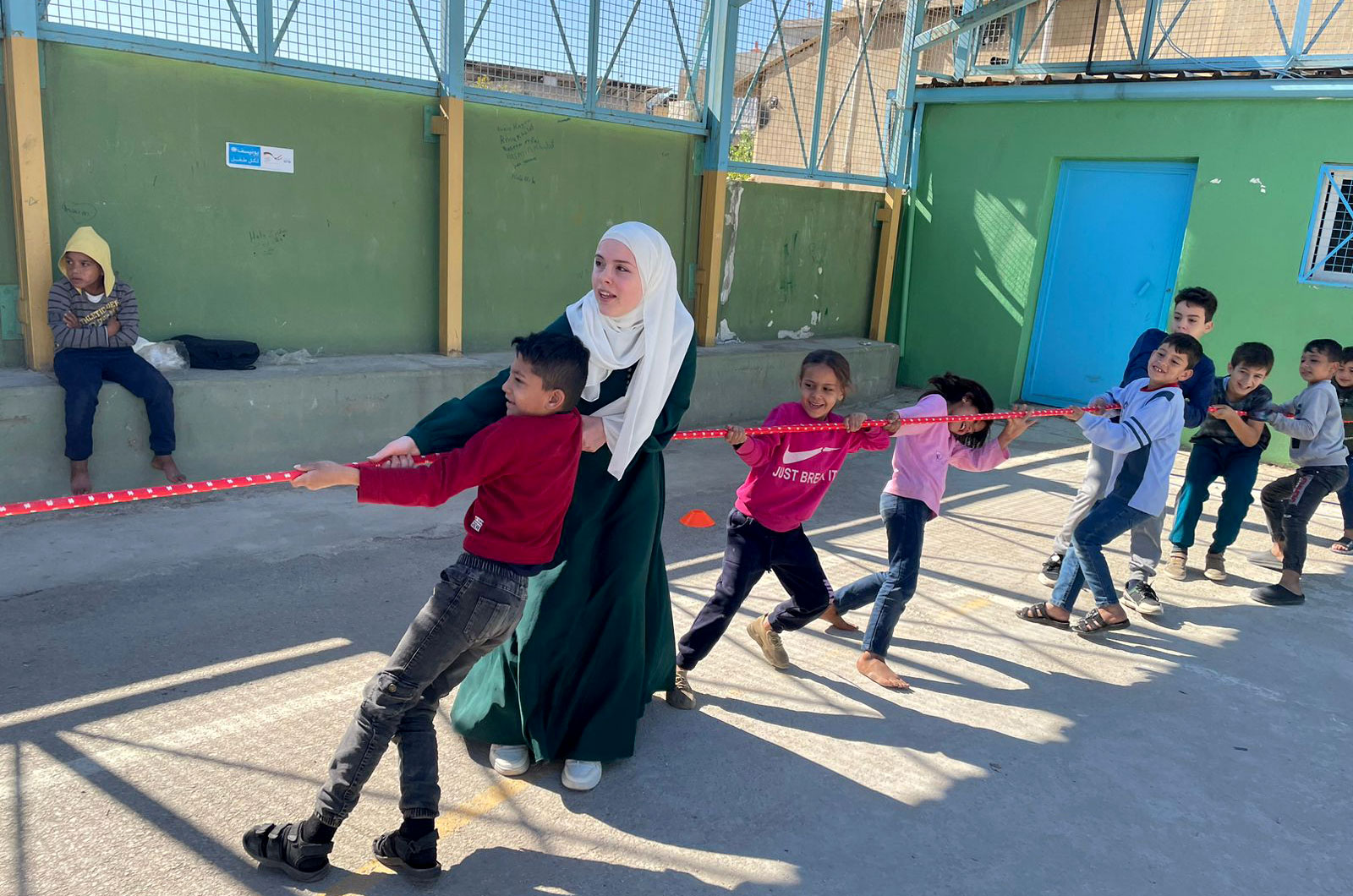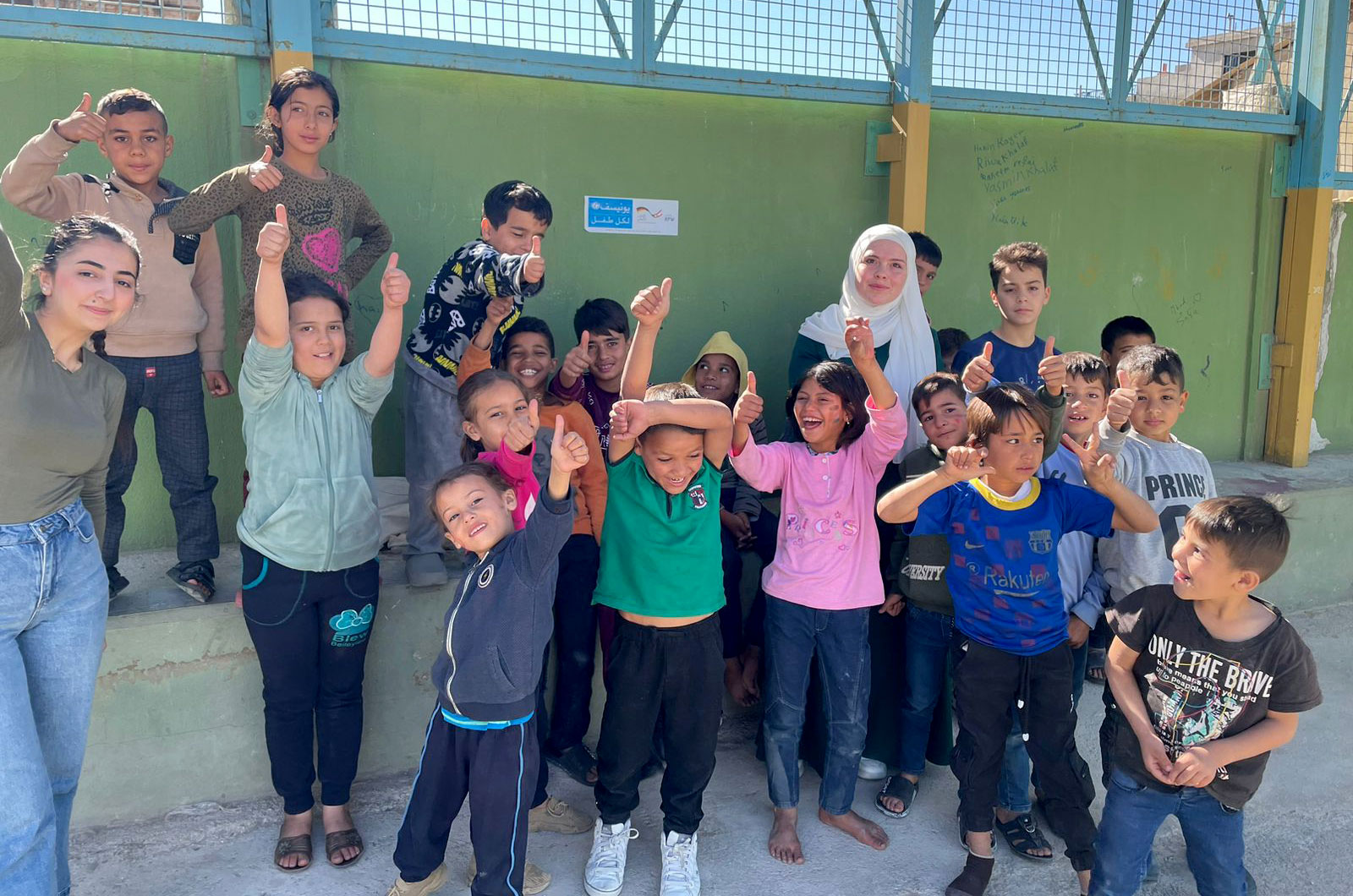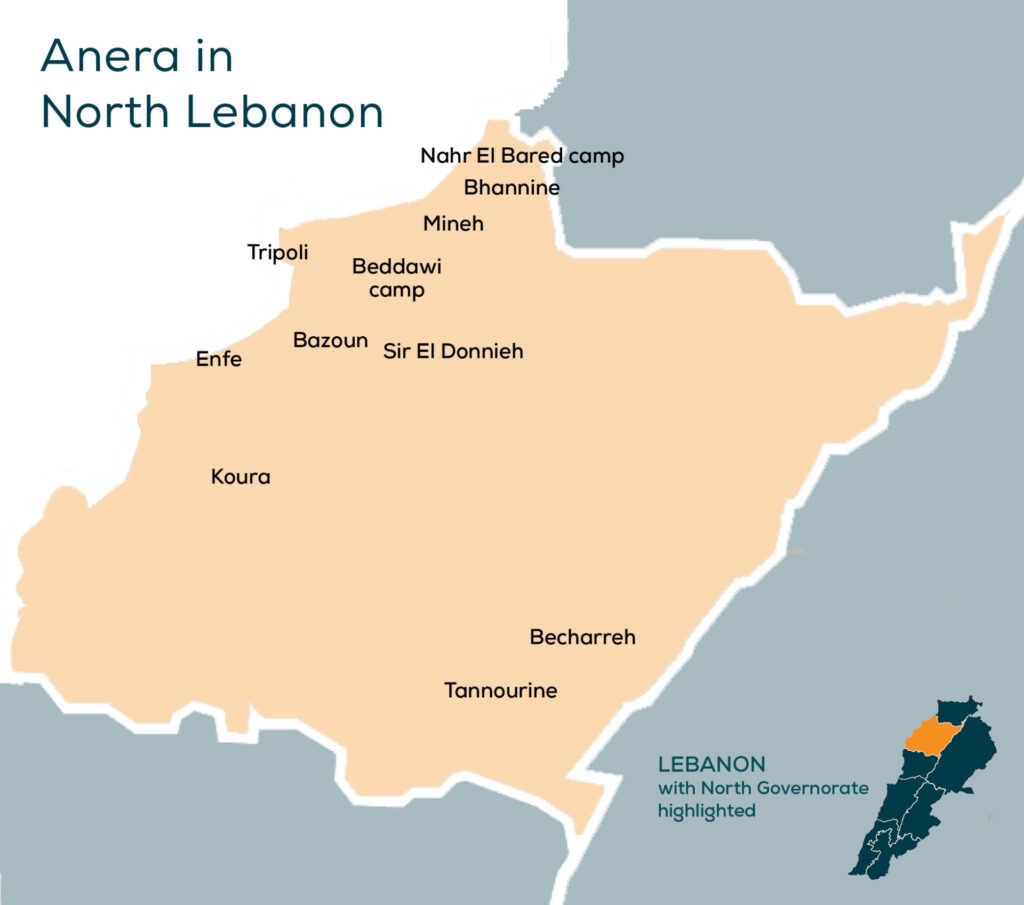Nov, 2024
A Journey Through Trauma and Displacement
The ongoing Israeli attacks on Lebanon have resulted in tragic waves of displacement, with over 1 million people driven from their homes, including some 400,000 children.
The psychological toll on these children is staggering. Nearly every child in Lebanon has experienced the effects of violence and instability, with many having lost loved ones, homes, or access to education. This has left children like Zeina and Ali — pseudonyms to protect their identities — grappling with fear and uncertainty. Amidst the chaos — sirens wailing, buildings crumbling, and families fleeing — the importance of addressing their psychological needs has never been more critical.
Hear Their Voices
"I’m scared we’ll end up like Palestinian children. I’m scared we’ll become like Gaza," says six-year-old Zeina.
Her fears mirror the harsh realities of her surroundings. Displaced from her once serene home in Hermel, nestled along the banks of the Assi River in the Bekaa, to the unfamiliar terrain of northern Lebanon, she recalls the harrowing experience of fleeing from one place to another. Each new location is beset by the unsettling sounds of war.
“I got really scared when the strike hit close by at my aunt's place in Beirut. The boom was so loud.”
She longs for the simple joys of childhood — giggling with friends, and the warm sun on her face during playtime.
"I miss playing with my friends. I want to be a doctor when I grow up. I want to help heal people."
Her memories of picnics by the river, filled with laughter and splashes of water, now feel like distant dreams, shattered by the violence that has consumed her world.
“I miss our life before. We’d spend much time by the river, having picnics, swimming, and playing. Now they even bombed that river.”


"I’m scared we’ll end up like Palestinian children. I’m scared we’ll become like Gaza."
Zeina's father, faced with the daunting challenge of keeping his children safe, reveals the emotional toll of their circumstances.
“At first, I convinced them it was just fireworks… But as it got more intense, I couldn’t keep up the story.”
His attempts to shield them from fear ultimately falter as his youngest son begins to understand the danger.
“Even my 3-year-old son started catching on, asking me, ‘Is this a strike?’ Now, every sudden noise he hears, he thinks it’s another strike.”
The emotional toll of displacement weighs heavily on him, each move feeling like a step further away from the safety of their old life.
Twelve-year-old Ali shares a similar tale of loss and longing.
“The bombing got closer and more intense,” he recalls, describing how his family fled from the picturesque Tyre district, with its sun-soaked beaches and vibrant community, to their second home in Dahyeh, only to find safety elusive.
“I can’t forget the horrific sound and how it felt through my whole body.”
The emotional weight of his journey is palpable as he reminisces about his friends, the laughter echoing in the streets where they played together:
“I miss Hassan most of all—he’s my best friend. But he’s in another shelter, far from here.”
The valley where he used to play remains etched in his mind — a mental sanctuary adorned with the songs of birds and the whisper of the breeze — now overshadowed by the threat of destruction.
“They’re burning everything! I hope everyone, everywhere, gets to go home safe. I hope we’ll go home safely too.”
As they fled, Ali instinctively grabbed a rechargeable light.
“I didn’t know where we’d end up, and it could be dark there. I don’t like the darkness.”
This small act illustrates his resilience and the fear that now shadows his existence. The darkness that surrounds him feels suffocating, a stark contrast to the laughter and light of his former life.
“I don’t even know how we survived the strikes. We grabbed whatever we could and ran.”
His resilience shines through as he reflects on his survival instincts, each step driven by the instinct to protect himself and his family.


I hope everyone, everywhere, gets to go home safe. I hope we’ll go home safely too.”
Anera’s Psychosocial Support Sessions
In response to the dire needs of displaced children, Anera has implemented psychosocial support sessions aimed at fostering emotional resilience.
“We are now focusing on children aged 8 to 12 years old, who are facing challenging circumstances,” says Sarah Hashem, education program manager at Anera, highlighting the importance of addressing psychological needs alongside basic necessities like food, water, beddings, and shelter.
Mahmoud Abdallah, Bekaa area manager at Anera, adds,
“Our [psychosocial support] activities for children focus on fostering unity and creating happy memories through educational games, sports, and recreational activities.”
These sessions provide children like Zeina and Ali a safe space to socialize, express themselves, and heal from the trauma they have endured, allowing their laughter to return, even if only for a moment.
Despite the overwhelming challenges they face, the resilience of children like Zeina and Ali shines through. Their dreams of a brighter future remind us of the importance of community support and the critical role that organizations like Anera play in helping these children cope with their trauma. By supporting these initiatives, we can contribute to their healing and hope for a better tomorrow.

